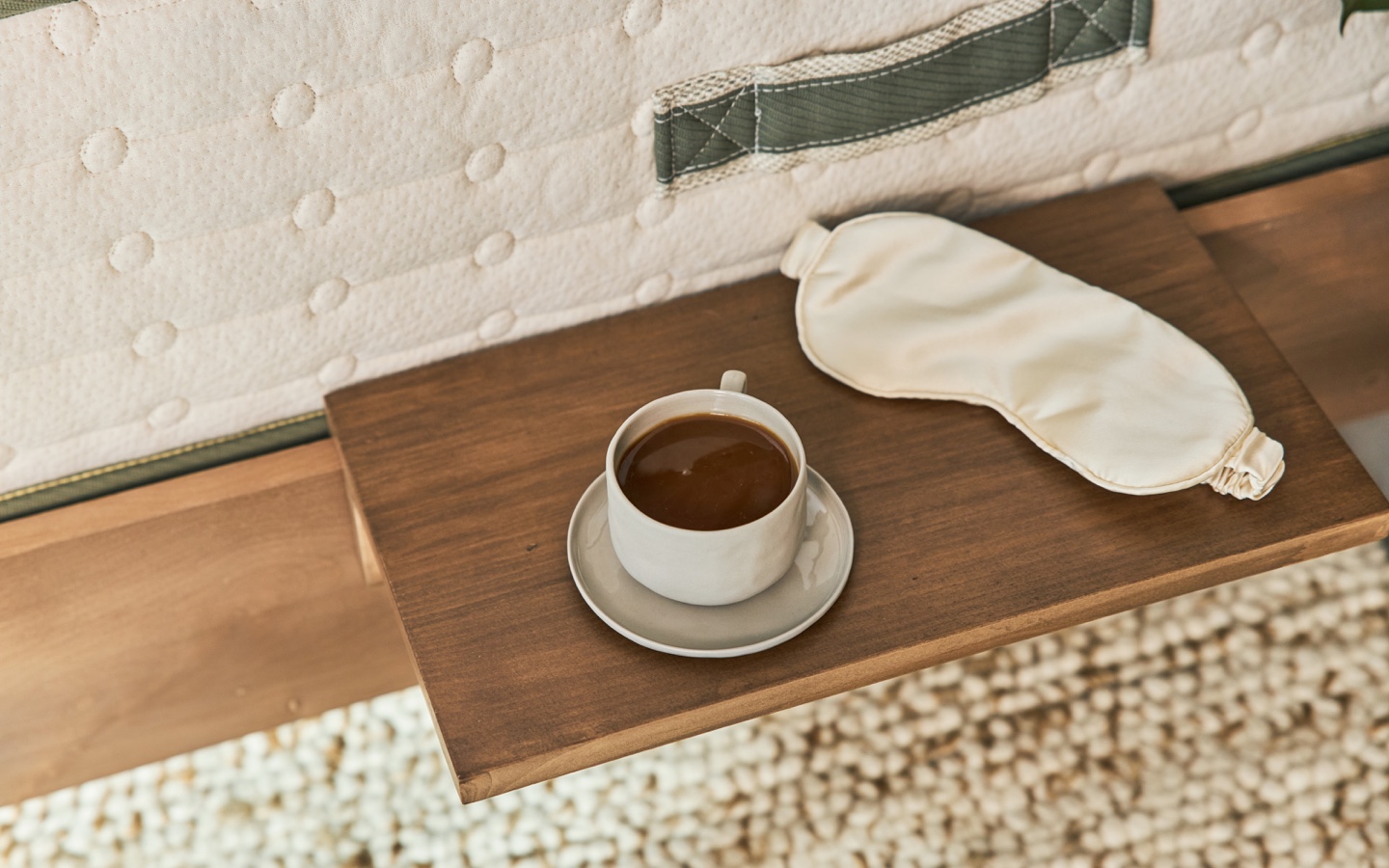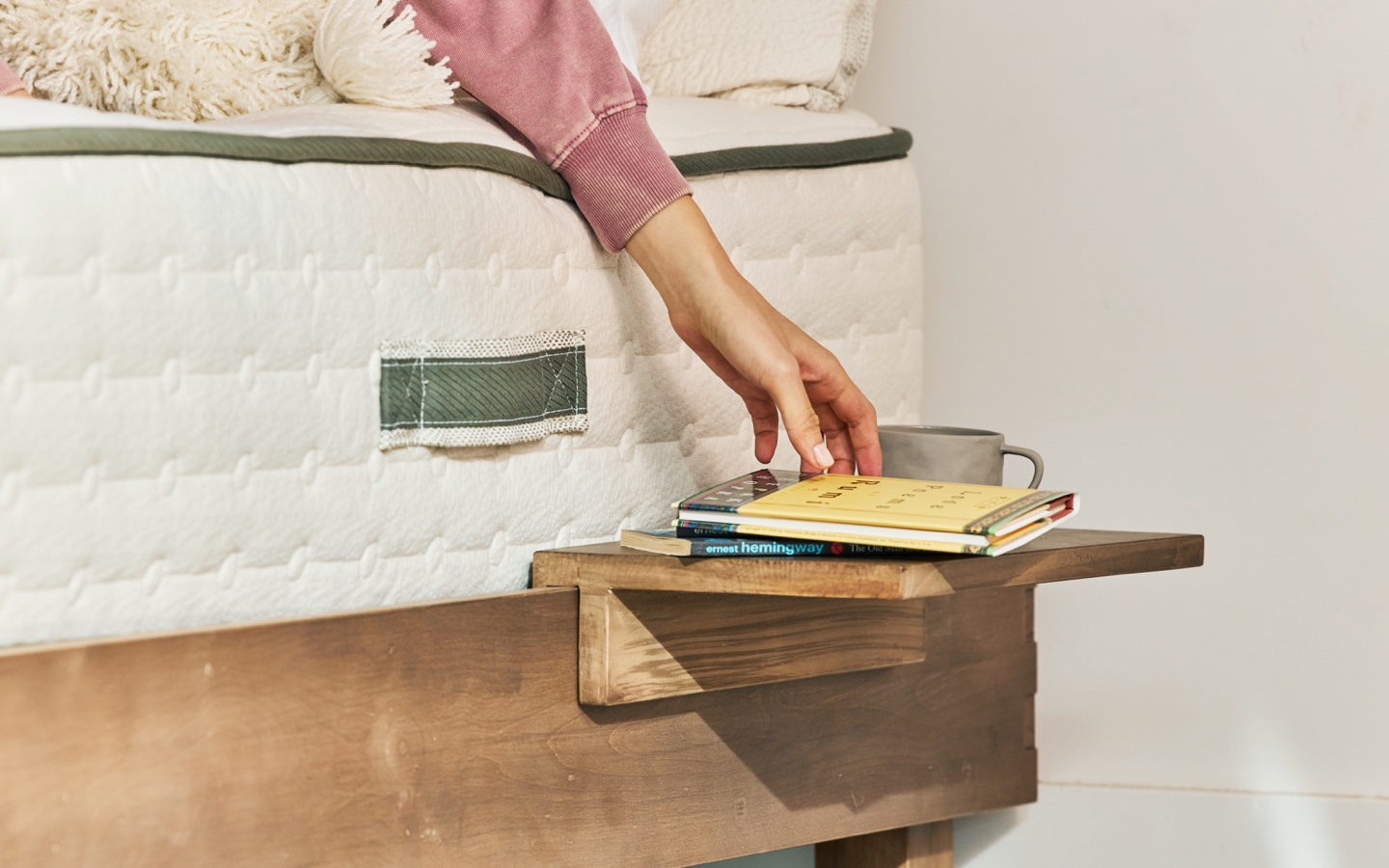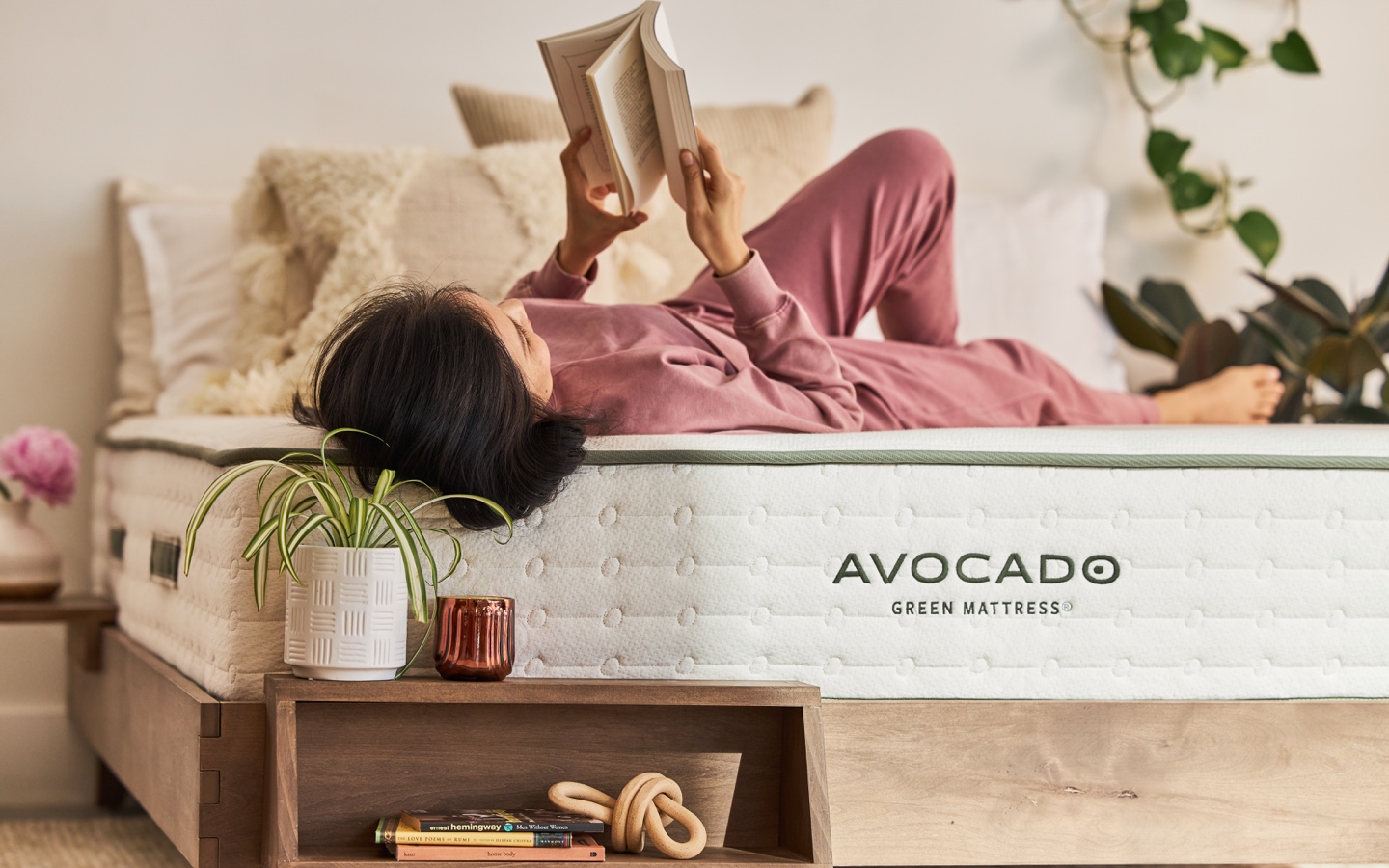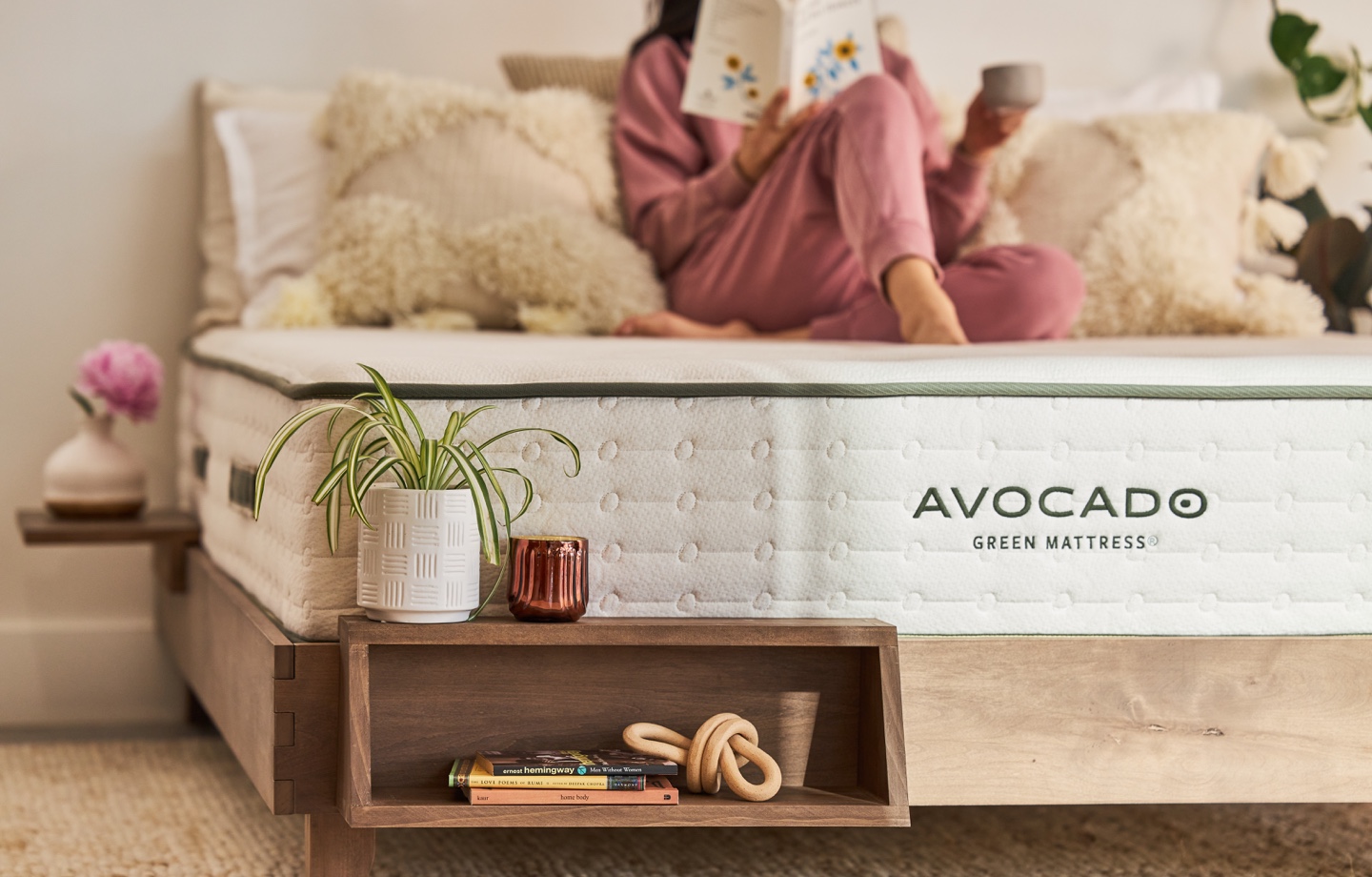Wellness
How Sleep Affects Your Health
In honor of Sleep Awareness Week, we spoke to Dr. Jaclyn Tolentino, DO, of Parsley Health to understand the connection between a good night’s sleep and a healthy body and mind.
Dr. Jaclyn Tolentino, DO, is a Board-Certified Family Physician and integrative and functional medicine practitioner specializing in hormone health. She has received extensive training through the Institute for Functional Medicine, and additional training in integrative oncology. She is a frequent contributor to publications including Well+Good, CNET, and Bustle, and has also been featured in Vogue, Headspace, and The Output by Peloton. She brings a comprehensive, whole-body approach to working with Florida and California-based patients as a Senior Doctor of the Virtual Team at Parsley Health.
During an Instagram Live session on March 16, our brand experience manager Desi Valdez chatted with Dr. Tolentino about how sleep affects our overall health, how to improve sleep quality, and if sleeping naked is actually beneficial. Here’s what we learned.
Desi: We’d like to hear a little more about your background and what led you to pursue integrative and functional wellness medicine as opposed to the more conventional path.
Dr. Tolentino: I actually started in a very conventional, high-volume primary care world — even though I had trained in Osteopathic medicine, which is a very whole-body, holistic approach to medicine, that recognizes the interconnected synergy of our body systems.
I had already started practicing hormone optimization when I was in the conventional medical world, prior to Parsley Health, but didn’t fully transition into integrative and functional wellness until I experienced a very serious health crisis in 2016.
That was the turning point for me — in trying to restore my own health, I was inspired to learn how to guide and educate other patients (like me) who really needed a different kind of approach to find true wellness and feel their best.

Desi: Considering how integrative and functional medicine seeks to improve wellness with a “whole person” approach, can you tell us a little more about the role sleep plays in the way our bodily systems work?
Dr. Tolentino: Sleep is so, so crucial to our overall health! When we’re sleeping, our body actually recharges and repairs itself on a cellular level — we need it on a physical and mental level to actually effectively function every day. And sleep also plays an important role in hormone regulation — which in turn can impact things like our body’s ability to effectively regulate blood sugar.
Finally, we also know that sleep has an important relationship with our immune system, and a lack of sleep can actually compromise our immune system’s ability to function properly. And all of this is on top of what most of us objectively know to be true; sleep is pretty critical for feeling our best every day, and when we go without good sleep we can definitely feel it in our alertness, our problem-solving skills, our memory, and definitely our mood. So overall, it’s hard to overstate how important sleep is.
Desi: Do adults really need 7 to 9 hours of sleep? What is truly optimal?
Dr. Tolentino: We generally say about 7 to 9 hours for adults, but for some people you may need a little more or a little less. I wouldn’t say too much more or less than the 7 to 9 hour window — we know that too little sleep can have a range of negative effects on our health, and too much sleep has actually been associated with some health issues as well. So yes, you really do need to try to aim for that window of sleep every single day to avoid building up a harmful sleep deficit or excess.

Desi: Many people have sleep issues. Can you discuss some tips for improving sleep quality (including addressing issues in falling asleep, staying asleep, or not feeling rested after sleep)?
Dr. Tolentino: I love talking about sleep hygiene! It’s one of my favorite topics — and yes, I have some tips to share with you.
My first tip is pretty simple — you have to create a sleep schedule for yourself. Start working on picking a fixed bedtime and a fixed wake-up time and that’s the schedule you stick to every day. I know this is really hard, but you can’t keep these erratic hours during the week and then try to make up for it during the weekend — it doesn’t work like that!
My next tip is creating an atmosphere that’s really conducive to good sleep — making sure the temperature is comfortable in your sleep space, you don’t have any distracting light or noise interfering with your ability to fall asleep, and finally — you have to unplug.
I know this is hard because so many of us are used to having the phone in our hand until the last possible minute when we fall asleep, but it can really impede our ability to fall asleep — and it’s not just that blue light can interfere with our body’s melatonin production, but things like the news or social media are often really stimulating. We don’t want that kind of stimulation when we’re trying to get into a relaxed, calm space.
Another thing that’s really important is making sure we’re able to breathe through our nose when we sleep — that’s really important for facilitating our body’s ability to filter oxygen and release of nitric oxide. You might be having issues breathing through your nose if you’re consistently waking up with a sore throat or dry mouth. If you’re not feeling well-rested even after you log several hours of good, interrupted sleep that could point to a deeper issue — and that’s when I would consider getting a healthcare professional involved to take a closer look at what’s going on.

Desi: Are sleep aids like melatonin safe? Can prolonged or consistent use be detrimental to other aspects of your health? What are some safe alternatives (Magnesium, etc?)
Dr. Tolentino: I tend to avoid making generalized recommendations about supplements because your individual body and state of health really need to be taken into consideration when making those decisions.
The short answer is yes, melatonin and magnesium glycinate are two options that may work as a sleep aid and are generally safe for use. There are several other options that may also be helpful for sleep support. The recommended amount or type may vary for each unique individual.
But I would still highly recommend talking to your doctor before you start taking these types of supplements, or any other types of sleep aids, to figure out if they’re really right for you. Supplements can sometimes interact with other medications, so if you’re experiencing difficulty falling or staying asleep, I’d really want to work with you to get to the root cause of that issue and from there develop an appropriate treatment strategy.
Desi: Sleeping naked… Can you weigh in with your professional opinion whether it’s beneficial or not?
Dr. Tolentino: That’s really a personal preference!
But I will say that temperature is actually really important for our sleep quality, and our bodies tend to prefer a slightly cooler environment for falling asleep and staying asleep — sometimes experts say between 60 to 68 degrees for adults. So what you wear to bed (or what you don’t!) can have an impact on the quality of your sleep, and especially if you find yourself waking up in the middle of the night too warm — or even sweating — it might be something to consider.
Desi: What impact does eating too close to bedtime or exercising too close to bedtime have on sleep, digestion, and overall health? Are there foods we should avoid and foods we should try to incorporate? Exercises to avoid or incorporate?
Dr. Tolentino: So with exercise before bedtime, just make sure you’re not working out too close to bed — I think making sure you’re wrapped up at least 90 minutes before bedtime, and avoid doing your highest intensity workouts at that time.
With mealtimes — something I talk about a lot with my patients — timing is important. Digestion is an active process, so we want to avoid eating too close to bed. You don’t want to eat too early, though, because you want to avoid having a blood sugar drop in the middle of the night — this can wake you up!
I like aiming for about three hours before bedtime for your last meal. I recommend a meal rich in slow-release, fiber-rich vegetables and carbohydrates like sweet potatoes or lentils — and you can pair that with lean proteins like wild-caught fish or grass-fed meat. For more tailored examples, our Health Coaches support our patients with thoughtful recommendations.
I also recommend being mindful of consuming caffeine or alcohol before bed — sugar and super-rich, high-fat meals are also not optimal choices for the best night’s sleep. You want things that are easy to digest, that your body will burn slowly.

Desi: Our mission is to create products that help safeguard people’s health and protect our planet. That’s why we use the finest certified organic, natural, and non-toxic materials. That said, the polyurethane foam found in conventional mattresses are a source of VOC emissions, which are associated with serious health implications. Considering the amount of time we spend in bed, can you discuss the implications of those materials and address how important it is that our mattress and bedding products are non-toxic?
Dr. Tolentino: I think the conversation regarding volatile organic compounds and products like polyurethane mattresses is part of a much larger conversation about reducing our total toxic burden. So many of the products we use, from personal care items to household cleaning products, contain ingredients that can potentially pose a serious and cumulative threat to our health. When we make the choice to purchase something like a mattress manufactured with organic or non-toxic materials, we’re limiting another potential source of exposure to things like endocrine disruptors, potential carcinogens, and respiratory irritants.
When it comes to things that we use really frequently — and that definitely includes our mattress — it’s about doing the research and seeking out these cleaner alternatives to bring into your home.
Desi: How beneficial are naps — should you avoid them if you are tired?
Dr. Tolentin: This is one of those areas where I think it’s really specific to the individual — some people can enjoy a short nap and it’s not an issue, and for other people it can really interfere with their nighttime sleep quality.
I think it’s important to pay attention to how you feel after you take a nap — is it helpful? Do you feel refreshed? Or are you kind of groggy and disoriented after the nap? And also assess your sleep quality that night — did you have a harder time falling asleep? Staying asleep?
I’d also add that if you’re suddenly feeling exhausted more frequently and you find yourself needing a nap to get through the day, that’s a great opportunity to take a closer look at what’s going on with your body.
The bottom line is — you have to find what works best for you, and the only way you can do that is to pay close attention to how you feel after you rest and what your body is trying to tell you.
To learn more about how sleep affects your well-being and other valuable holistic health information, follow @ParsleyHealth and @drjaclyntolentino on Instagram.

Shop Pillows
The Essential Organic Pillow Collection
Gentle, breathable, non-toxic support.




